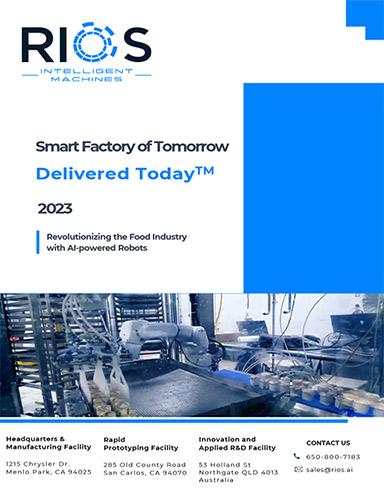The food industry is mostly labor labor-driven and faces a range of challenges that can impact their ability to efficiently and effectively produce and distribute food products. AI-powered robots can help the food industry address many of the challenges they face, by providing new ways to automate processes and improve efficiency. Here are a few examples on how RIOS automation solutions can help:
Labor shortages
By using robots to perform production tasks, the food industry can significantly reduce its reliance on manual labor and hit production goals. Robots can work around the clock, without taking breaks or requiring time off, and can perform repetitive tasks with consistent precision.
Food safety concerns
Robots can be used to monitor food production processes and detect potential quality issues, such as defects, contamination or spoilage. With advanced sensors and machine learning algorithms, robots can identify issues in real real-time, helping to prevent quality issues before they become a larger problem.
Need for faster production
Robots can help the food industry increase its production speed, by automating processes such as packaging, palletizing, and material handling. By increasing production speed, companies can keep up with consumer demand and reduce lead times.
Supply chain disruptions
With the help of robots, the food industry can improve supply chain visibility and reduce the risk of disruption. Robots can be used to track inventory, monitor shipping and logistics, and even provide predictive maintenance, helping to prevent breakdowns and delays.
Regulatory compliance
Robots can assist with regulatory compliance by ensuring that processes are carried out consistently and according to established standards. By automating compliance checks and quality control processes, companies can reduce the risk of compliance issues and improve overall product quality.
Fill out the information below to download the resource.

Article topics
Email Sign Up











